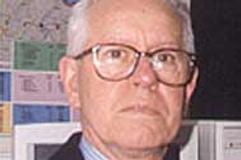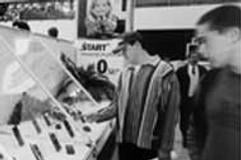- Perk, Trnava: “Stylish, affordable, and seriously tasty” – restaurant review
- Ambulance hit by Russian drone goes on display in centre of Bratislava
- Slovakia’s public finances remain in deep trouble
- News digest: Police linked to Fico gunman video leak – minister accused of cover-up
- Police bosses handed cut-price “luxury” flats in Bratislava
- Slovakia’s labour market falters as migration policy falls behind EU neighbours
- Hundreds of people ousted from Bratislava’s Volkswagen
- Water supply to be cut in parts of Bratislava’s Old Town in late April
- Ambulance hit by Russian drone goes on display in centre of Bratislava
- Slovakia’s public finances remain in deep trouble
- Bratislava’s embassy-backed events you don’t want to miss
- Perk, Trnava: “Stylish, affordable, and seriously tasty” – restaurant review
- 3 free things to do in Bratislava in the next seven days
- Slovakia mourns Pope Francis, a shepherd of hope and humility Photo
- Hundreds of people ousted from Bratislava’s Volkswagen
- “Return not,” the ocean cried. But I returned for her
- Ambulance hit by Russian drone goes on display in centre of Bratislava
- “Return not,” the ocean cried. But I returned for her
- Bratislava’s embassy-backed events you don’t want to miss
- The British Film Institute shines a light on Slovak cinema’s boldest chapter Video
- Slovakia’s public finances remain in deep trouble
- 3 free things to do in Bratislava in the next seven days
- Slovakia mourns Pope Francis, a shepherd of hope and humility Photo
- When to shop over Easter: Opening hours for supermarkets in Slovakia
- “Return not,” the ocean cried. But I returned for her
- Ambulance hit by Russian drone goes on display in centre of Bratislava
- 3 free things to do in Bratislava in the next seven days
- German shoemaker Lowa joins wave of factory closures in Slovakia
- US giant pulls plug on Slovak factory, axing 137 jobs
- Hundreds of people ousted from Bratislava’s Volkswagen
- Bratislava’s embassy-backed events you don’t want to miss
- When to shop over Easter: Opening hours for supermarkets in Slovakia
- News digest: Police linked to Fico gunman video leak – minister accused of cover-up
- Police bosses handed cut-price “luxury” flats in Bratislava
- Cyclists, sausages and a railcar called Hurvínek Photo
- Slovakia’s labour market falters as migration policy falls behind EU neighbours
- Remembering the priest-scientist and pioneer of wireless communication
- Perk, Trnava: “Stylish, affordable, and seriously tasty” – restaurant review
- What is Pope Francis’s message to the powerful?
- Slovakia mourns Pope Francis, a shepherd of hope and humility Photo More articles ›
















